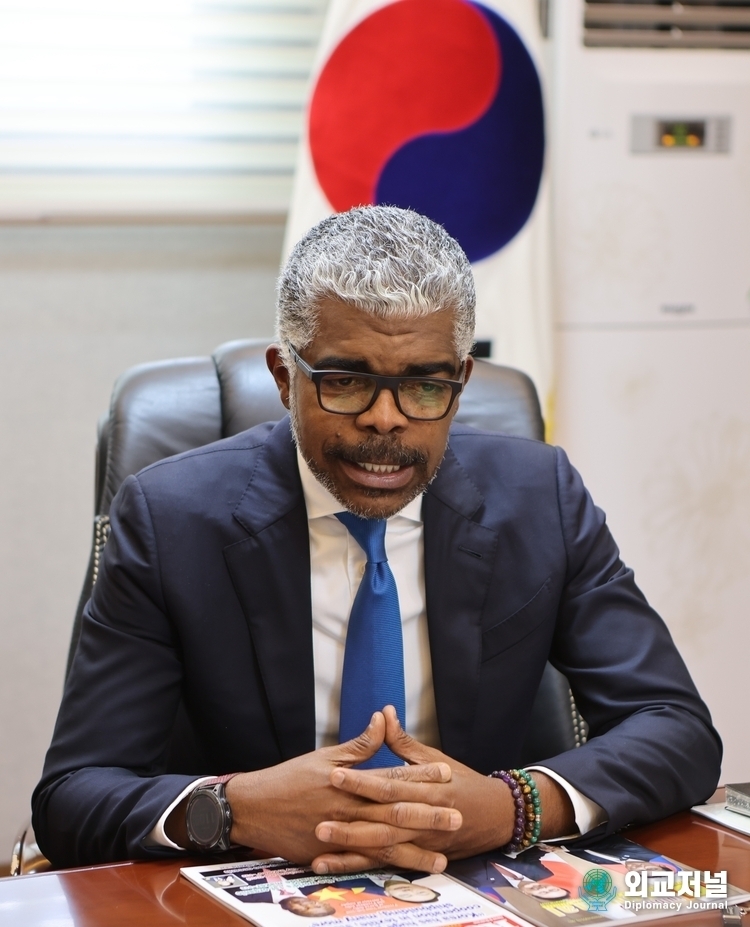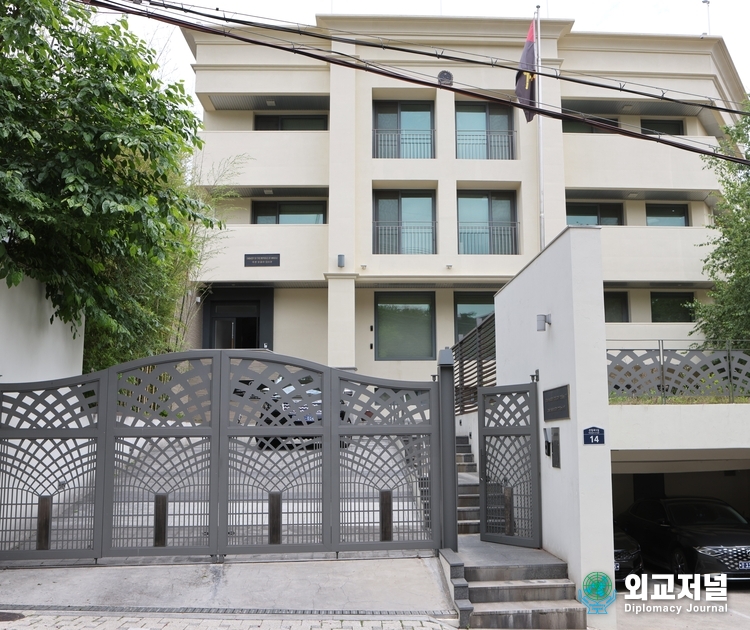Publisher Lee Jon-young, Reporter Kayla Lee
“Angola has a huge potential in agriculture, fisheries, vehicle assembly, hotels, transport system and other manufacturing sectors,” said visiting Minister of Transport Ricardo Viegas D’Abreu of Angola.
In an exclusive interview with The Diplomacy Journal. Minister D’Abreu said, “Angola has many attractive programs for foreign investors, including Korean businessmen. There are many areas in my country where Korean businesses can cooperate for mutual benefit, especially in the development of cattle, livestock, fisheries and other agricultural fields.”

▲ Minister of Transport Ricardo Viegas D’Abreu of Angola
Noting that Angola boasts of a long coastline and maritime border, the transport minister said, “We have many privatization programs for foreign investors to help them do business here easily and efficiently.”
The followings are excerpts from the interview with Minister of Transport Ricardo Viegas D’Abreu of Angola who visited Korea for the first time.
Question: Many Korean companies are seeking new investment opportunities after coming out of China. Are there any fields in Angola where Korean businessmen, including Korean small and medium-sized enterprises, make investment?

Answer: Angola has been carrying out many privatization programs, which will boost foreigners’ investment in the agriculture, fisheries, vehicle assembly, hotels, transport system and others.
In particular, Angola has reasonable and sizable land so that foreign investors can find good opportunities in cereals, crops, wheat, fisheries and other sectors for local production, sales and exports.
Q: While staying in Korea, do you have any plans to meet with Korean businessmen or government officials?
A: I met with senior officials of Korean Air and Korea Airports Corporation (KAC). I exchanged many views on the airport management, airport infrastructure and other pending issues.
As Angola is now building a new airport in Luanda, the capital, we hope to maintain and secure reasonable operation systems through close cooperation with related Korean companies.

▲ 3. The Embassy of Angola in Seongbuk-gu, Seoul, Korea
Q: Would you introduce any other projects carried out by the Angolan government?
A: One of the purposes of my visit to Korea is to attend the International Civil Aviation Organization (ICAO) Global Implementation Support Symposium (GISS) in order to seek overseas expansion.
Related to this, I met Yoon Hyung-jung, president of KAC, at the Conrad Hotel in Yeouido, Seoul, on March 30 and discussed many ways to develop the aviation industry of Angola.
At the same time, Angola has been making all-out efforts to join the global campaign to achieve net zero carbon emissions by 2050.
Ricardo Viegas D’Abreu graduated in economics from the Lusíada University in Lisbon, Portugal. He then achieved an MBA at the University of Bath, with a thesis on opportunities for the hydrocarbon sector in Sub-Saharan Africa.
In 1997, he was part of the founding team of the first private Angolan bank, the current BAI – Banco Angolano de Investimentos, having held various management and coordination positions before. In 2006, he co-founded BNI – Banco de Negócios Internacional, where he was Vice-President of the Board of Directors.







